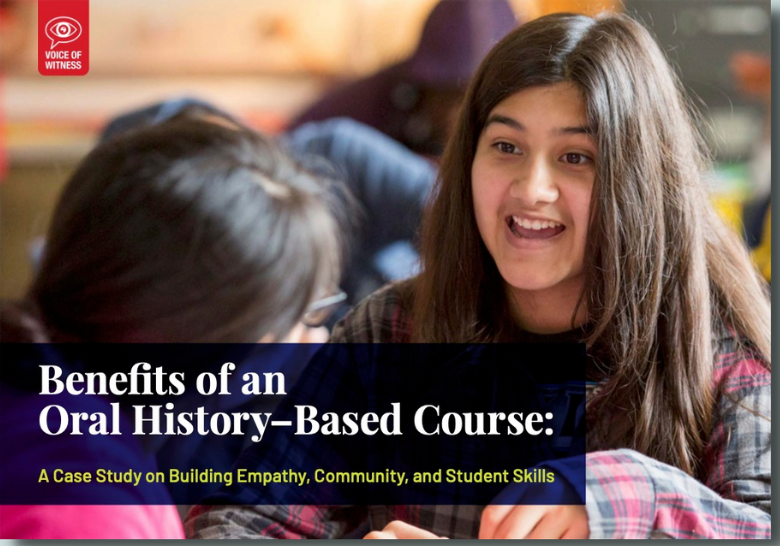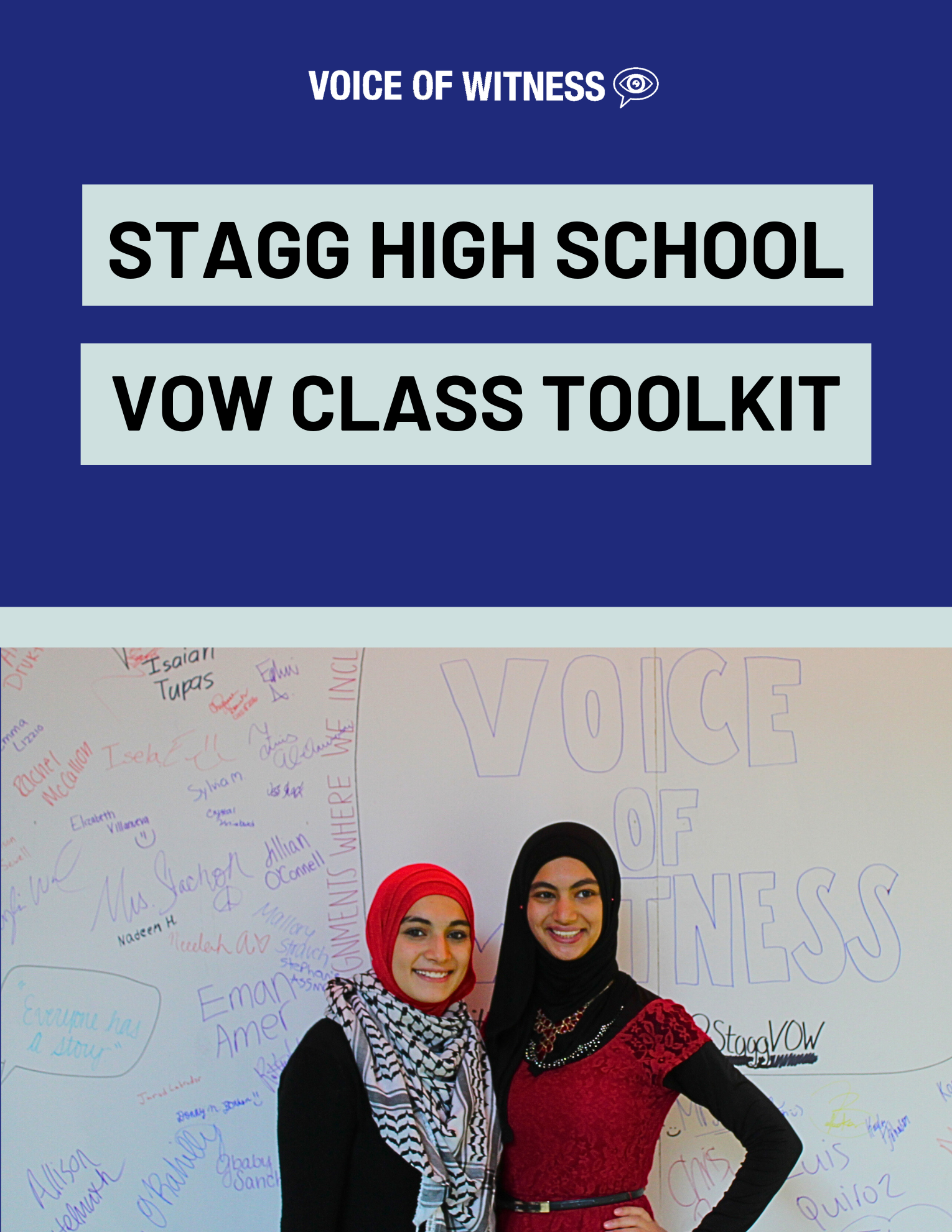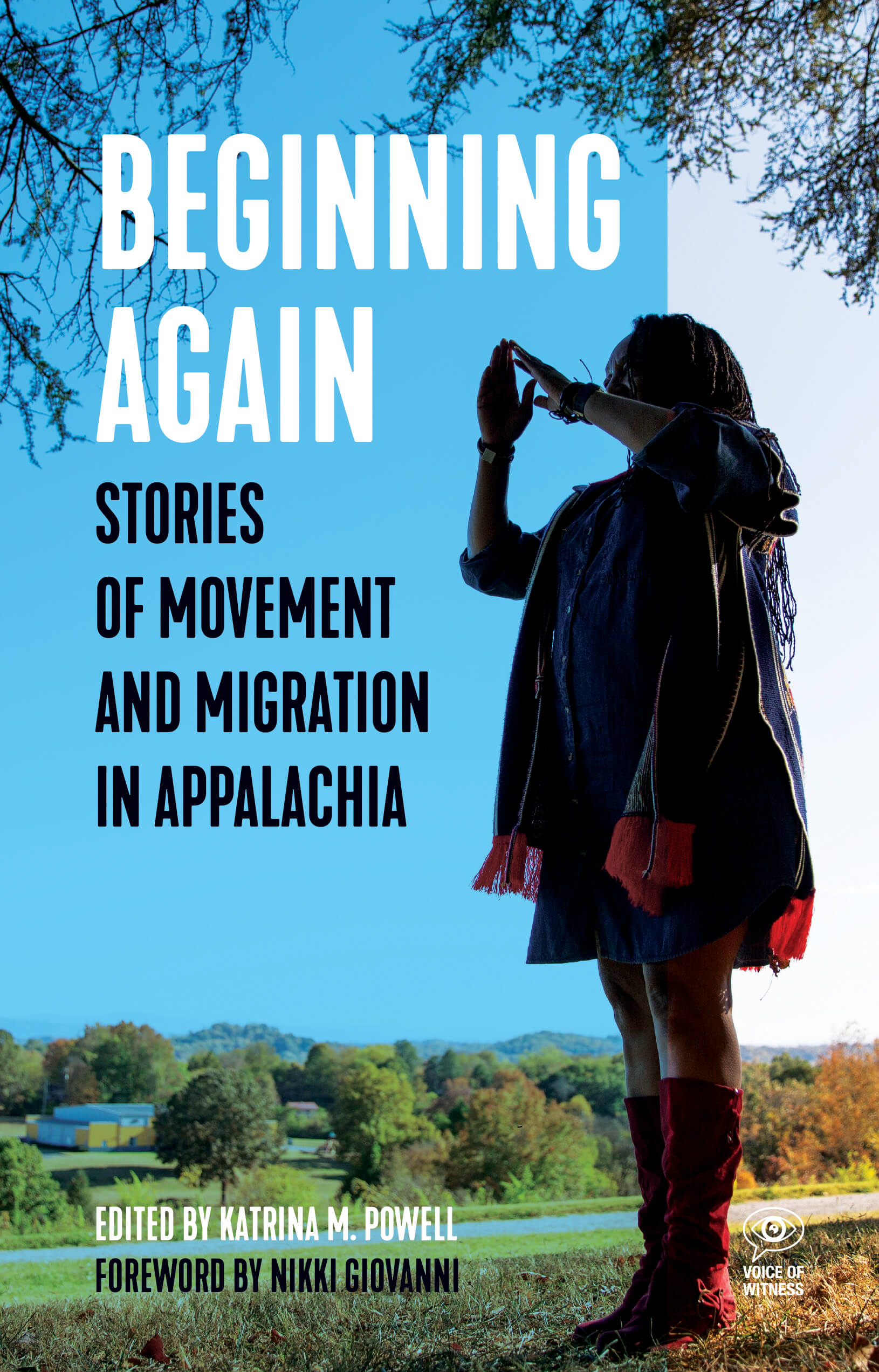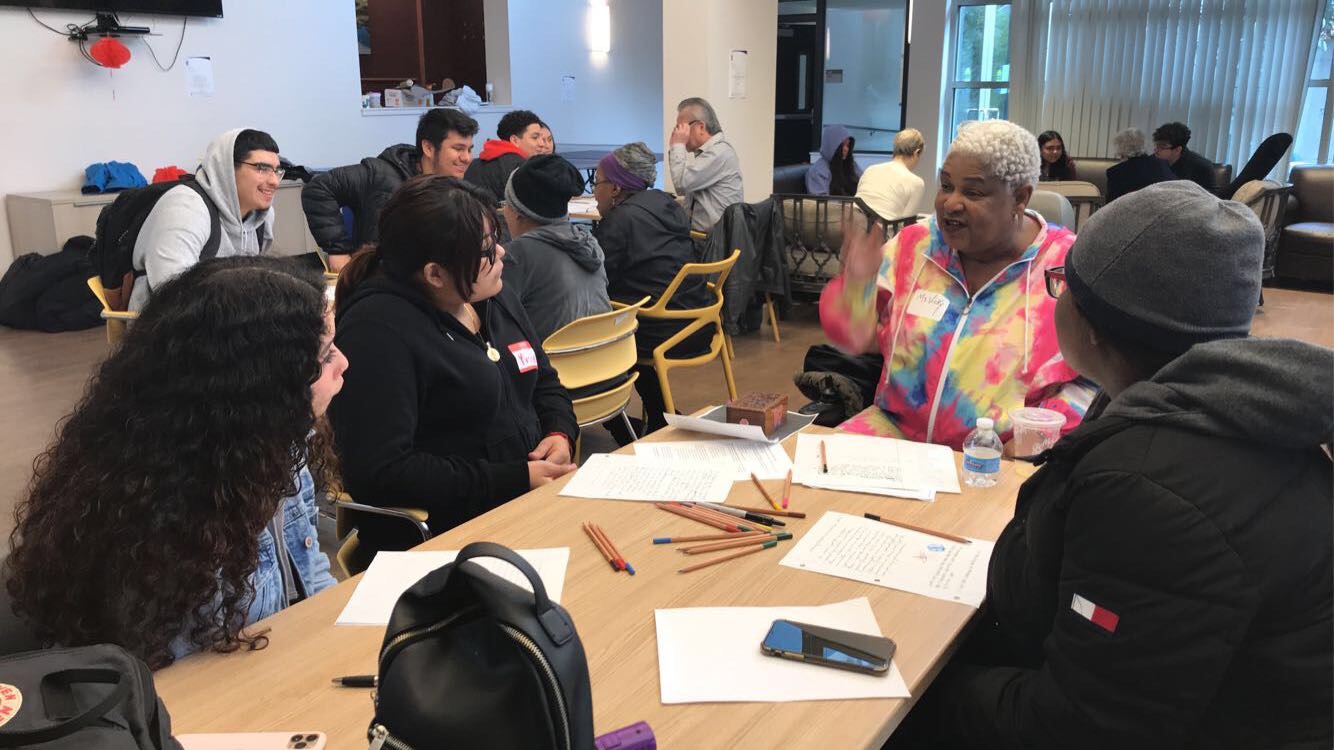Grades 9-12
Lesson Plan: Jobs & Careers Interview
This single-day lesson plan guides students through preparing for an interview around the theme of jobs and careers.
Lesson Plan: Artifact Interview (Grades 6-12)
This single lesson plan guides students through an oral history interview about an artifact or object of personal or cultural significance.
Cultural and Personal Identity • Education • English Language Learners • Storytelling Best Practices
Lesson Plan: Family, Culture, and Traditions Interview
This single lesson plan prepares students for an oral history interview with a family or community member about culture and traditions.
Cultural and Personal Identity • Education • English Language Learners • Storytelling Best Practices
Lesson Plan: Oral History Found Poem
This two-day lesson plan guides students through creating a sensory, details-focused found poem using an oral history interview as source material.
Arts • Cultural and Personal Identity • Education • English Language Learners • Migration & Displacement • Storytelling Best Practices
Benefits of an Oral History–Based Course: A Case Study
What are the unique benefits of an oral history-based course? Read our case study that evaluates the short- and long-term impact on student learning.
Stagg High School VOW Class Toolkit
This toolkit shares a collection of high-impact projects and assignments for educators interested in creating their own oral history units or classes.
Beginning Again: Stories of Movement and Migration in Appalachia Curriculum
These lessons explore oral histories that examine the complexities of why people leave, why people stay, and and the systems that interact with individual choice. The curriculum is rooted in an Ethnic Studies framework that questions dominant narratives and promotes critical thinking around not only the Appalachian region, but migration and displacement in general.
Deep Conversation Starters for Relationship Building
This single-page handout contains over twenty prompts to spark new stories, deepen bonds, and create a safe and brave space for sharing.








